Observers say the US trade deficit will continue to increase in the coming time, as businesses take advantage of stockpiling goods to avoid high taxes.
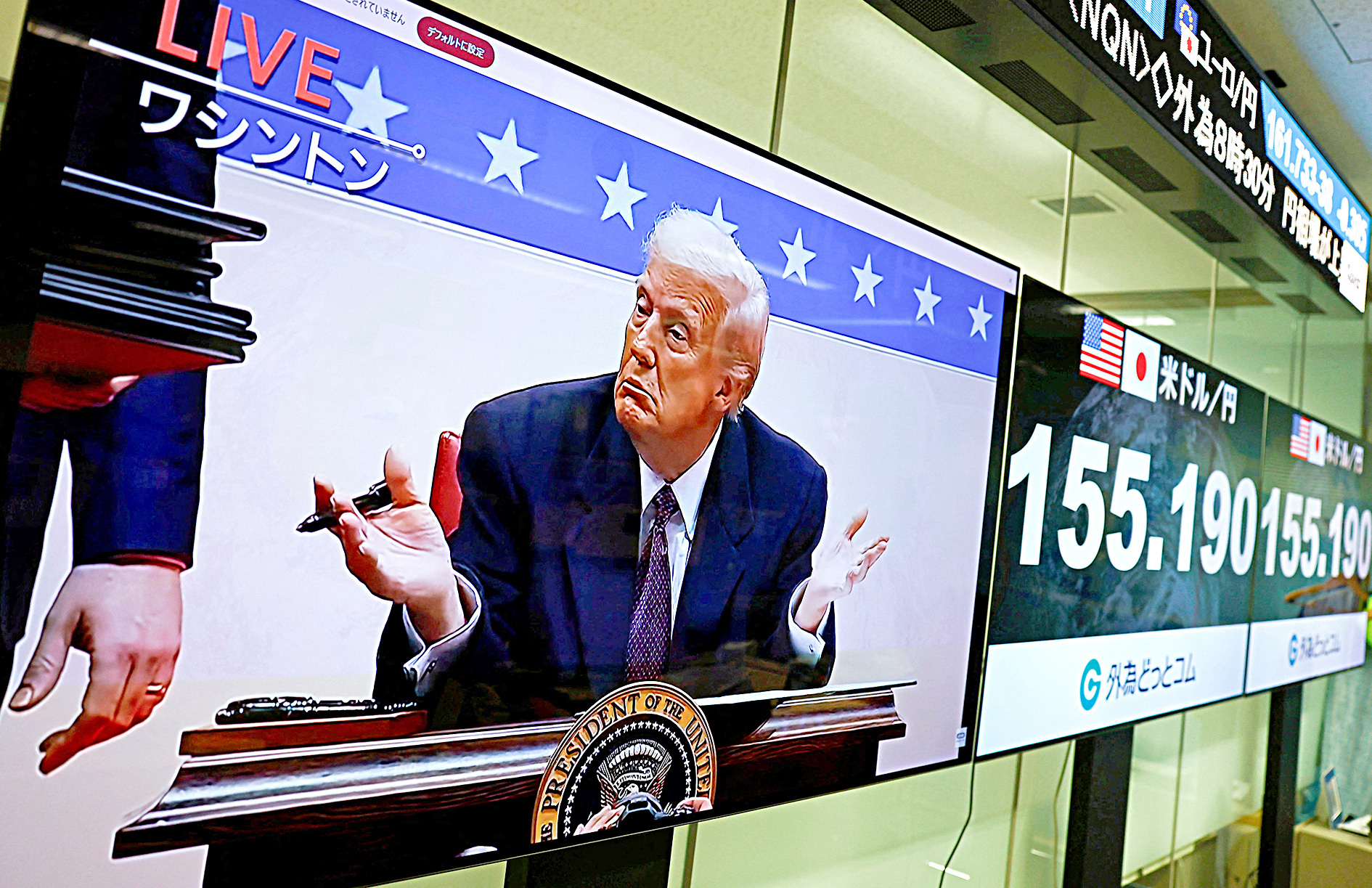
A screen broadcast live the moment US President Donald Trump signed many executive orders on January 21 - Photo: REUTERS
According to newly released data from the US Department of Commerce, the amount of goods imported into the US reached a record level in December 2024, causing the trade deficit to skyrocket.
This is believed to be a reaction of businesses to the threat of tax imposition by US President Donald Trump right before his inauguration, when they actively stockpiled goods to avoid taxes.
Race to import goods to avoid taxes
Figures from the Bureau of Economic Analysis (BEA) show that the US trade deficit in the month before Mr. Trump took office increased 24.7% to $98.4 billion, the highest level since March 2022.
Imports to the US in December 2024 increased by 3.5% - reaching 364.9 billion USD, an all-time high, along with exports decreasing by 2.6%, contributing to Washington's trade deficit in 2024 of 918.4 billion USD - the highest level since 2021.
In the context of increased imports into the US, Canada recorded in December 2024 the first time the country exported more than imported in the past 10 months.
Ottawa's trade surplus in the final month of 2024 reached $496 million, thanks to a 4.9% increase in exports, according to Statistics Canada.
"It's no coincidence that we've seen a strong upward trend since October 2024," said Stuart Bergman, chief economist at Export Development Canada.
According to Mr. Bergman, the hoarding of goods by American companies in response to the Trump administration's threat to impose a 25% tariff on Canadian goods, along with strong consumer demand in the United States, has led to increased imports of goods from Canada.
Both Canada and Mexico are having their tariffs postponed until next month thanks to a deal with the US. But experts say the current trade deficit, which is likely to continue to increase, will only strengthen Mr Trump's argument for imposing tariffs as trade protectionism.
"The strength in imports appears to have ended as businesses accelerated orders ahead of the possibility of tariffs. This trend seems unlikely to reverse in the near term, with Mexico and Canada still at risk of being hit with 25% tariffs next month," said Thomas Ryan, North America economist at Capital Economics.
Countries begin to react
Responding to moves targeting Chinese goods, Beijing on February 5 filed a complaint with the World Trade Organization (WTO).
China has also recently responded harshly to trade with tariffs targeting coal, liquefied natural gas, crude oil and agricultural equipment imported from the US, along with opening an antitrust investigation into Google.
Meanwhile, countries with smaller economies and large trade surpluses with the US, such as Thailand, are trying to find ways to import more goods from Washington. Pongsarun Assawachaisophon, deputy secretary-general of the Thai prime minister, said earlier this week that Bangkok would increase ethane imports from the US by at least 1 million tonnes in the second quarter of 2025 to reduce its trade surplus with the US.
In 2024, Thailand recorded a trade surplus with the US of $35.4 billion. The US was also Thailand's largest export market last year, accounting for a total of 18.3% of total exports.
Thai businesses also expressed impatience with the news of the US imposing additional tariffs on Beijing's goods, fearing that Chinese exporters will increasingly ship products that cannot be exported to the US to neighboring countries.
Kriengkrai Thiennukul, president of the Federation of Thai Industries, said that if Prime Minister Paetongtarn Shinawatra's government does not act now, the number of Thai industries affected by cheap Chinese goods will increase.
Mr. Kriengkrai suggested that Thailand hire lobbyists to counter U.S. trade policies, as well as convince Chinese companies to form joint ventures with Thai companies to produce products that avoid Washington’s restrictions. Meanwhile, Thai officials said they would offer incentives to multinational corporations looking to the country to avoid the impact of the U.S.-China trade war.
The Fed is also confused.
On February 5, US Treasury Secretary Scott Bessent defended Mr. Trump’s tariff strategy in his first interview with the media since taking office. Mr. Bessent said the tariff strategy is aimed at bringing manufacturing back to the US, including industries that have largely disappeared from the US.
Meanwhile, US Federal Reserve (FED) officials are concerned that uncertainty over tariff policy, as well as other issues arising from the early days of the Trump administration, is the top challenge for figuring out Washington's monetary policy in the coming months.
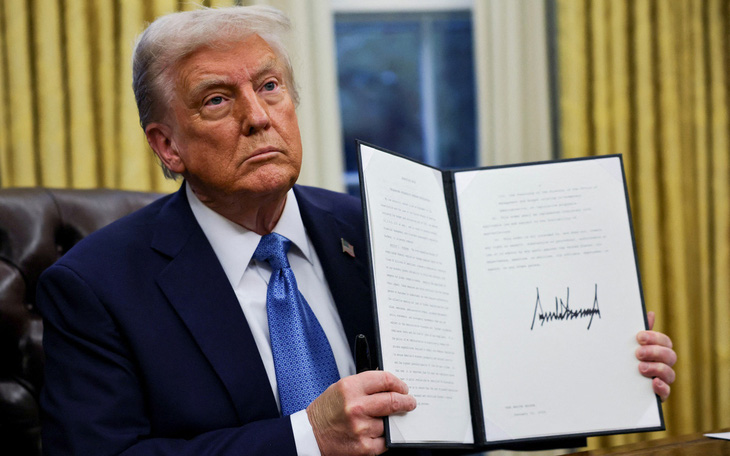 When Mr. Trump uses tariffs
When Mr. Trump uses tariffsSource: https://tuoitre.vn/du-cach-doi-pho-voi-thue-cua-ong-trump-2025020709143844.htm












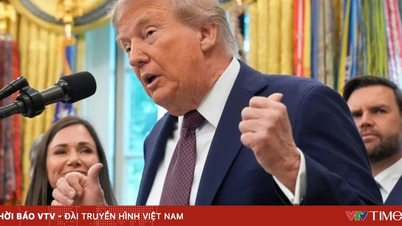
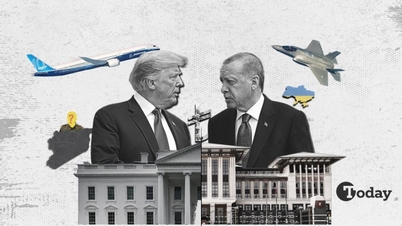

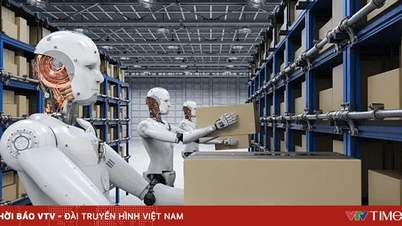




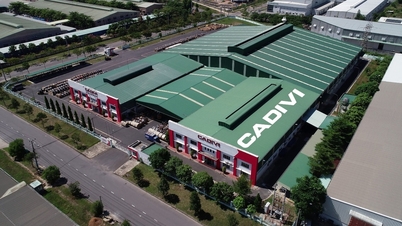











































































Comment (0)